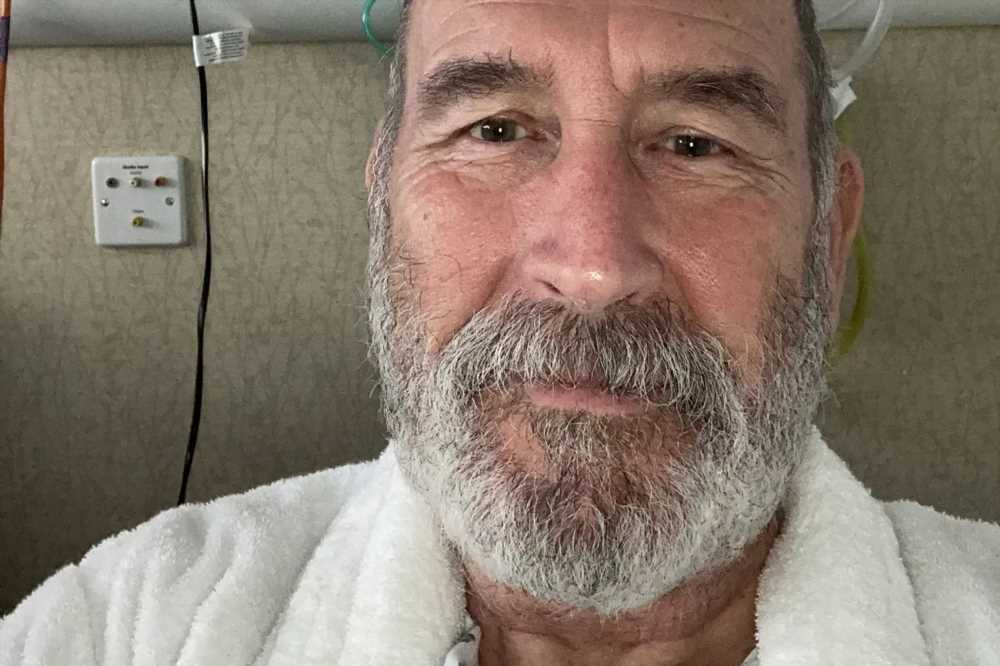GRANDDAD of 12, Robert Dolan, felt a pain in his foot as he was walking his dog.
The 72-year-old from Brooklands in Trafford came home to discover that his foot was bleeding – but never imagined it'd be the first sign of a devastating diagnosis.
Both of Robert's parents sadly passed away of cancer, but being diagnosed with melanoma – the deadliest form of skin cancer – in 2021 after the incident was a shock to him.
The granddad – who has fostered hundreds of young people in his home in the last 30 years- underwent surgery to remove a lump in his foot in February.
But after having a biopsy, he received the horrifying news that the cancer had spread to his lymph nodes and lungs.
A dad of two who served in the RAF and has been married to his wife Irene for 39 years, Robert was referred to cancer centre The Christie in March 2021 for further treatment.
Read more on melanoma
The ‘silent’ symptom of deadly skin cancer on your feet – and 8 other sign
Can you spot killer moles from the harmless ones?
The first immunotherapy drug he tried didn’t work, so he moved to a combination therapy with the immunotherapy drugs, Nivolumab and Ipilimumab.
Robert underwent his first four treatments at The Christie in Withington, but has been able to receive the rest of them from the comfort of his own home thanks to the centre's 'at home' team.
The familiar environment has been a comfort to him: "It’s like having someone put a warm blanket around you when you feel poorly," he told Manchester Evening News.
His most recent PET scan showed no sign of the disease progressing in his lungs, allowing his treatment team to start him on radiotherapy for his lymph nodes.
Most read in Health
The little-known symptom of dementia you might spot in the shower
Urgent warning to holidaymakers as brain-eating bug kills second victim
Warning as mum’s post-pregnancy symptom caused son’s penis to be ‘sliced off’
Eating household staple can regulate person's mood and make them less angry
What are the signs of melanoma?
Some 16,700 Brits receive a melanoma diagnosis yearly, with charities warning that rates have rocketed in recent years – and they're expected to continue doing so.
The most common sign of melanoma is the appearance of a new mole or a change in an existing mole.
Other signs include:
- A mole with a mix of colours
- A large mole
- A mole that changes over time
- A swollen mole
- A bleeding mole
- An itchy mole
- A crusty mole
- A mole in the shape of a line under a nail
In women, the most common specific location for melanoma skin cancers in the UK is the legs.
Men are more likely to see melanomas in their trunk – the back or torso.
It can occur at any age, but it's more common in older people, according to Cancer Research UK.
It often develops in areas exposed to sun damage or in moles, but it's more rare for it to appear in places not exposed to the sun.
Can melanoma spread?
According to Cancer Research, when melanoma reaches an advanced stage, it can spread to anywhere in the body despite where it started.
Symptoms will depend on where in the body it is, but they could include:
- hard or swollen lymph nodes
- hard lump on your skin
- unexplained pain
- feeling very tired or unwell
- unexplained weight loss
- yellowing of eyes and skin (jaundice)
- build up of fluid in your tummy
- tummy pain
When should I see a GP?
Go and see your GP if:
Read More on The Sun
My Ryanair booking hack will save you loads on cabin bags… never pay full price
11 freebies & discounts worth £6,788 you can get on Universal Credit
- a mole is itching or painful
- a mole is bleeding or becoming crusty
- a mole looks inflamed
- you have an unusual mark or lump on your skin that lasts for a few weeks
- you have a dark area or line under a nail that is not due to an injury
The earlier a melanoma is picked up, the easier it is to treat and the more likely treatment is to be successful, so it's important to seek help as soon as possible.
Source: Read Full Article












